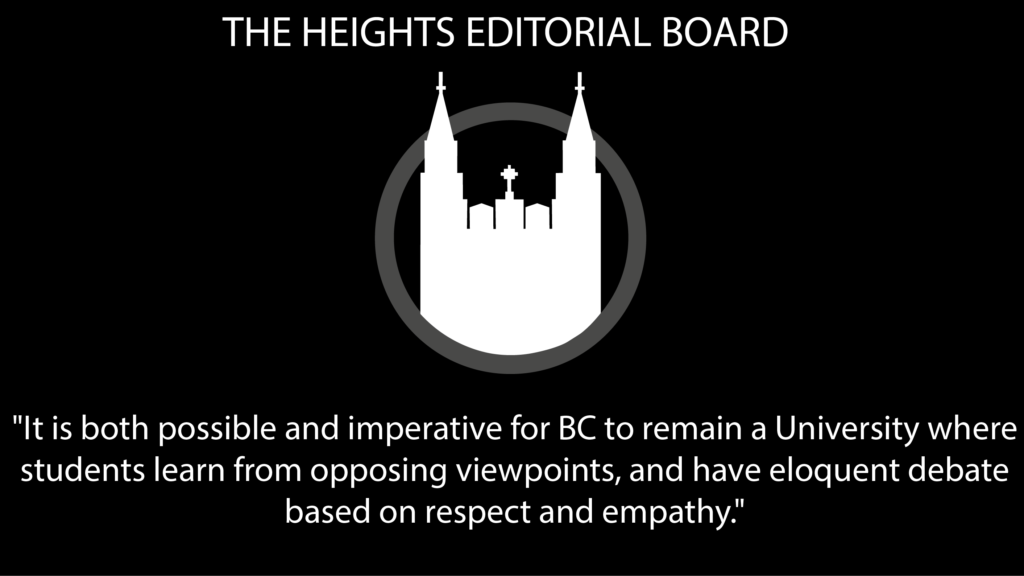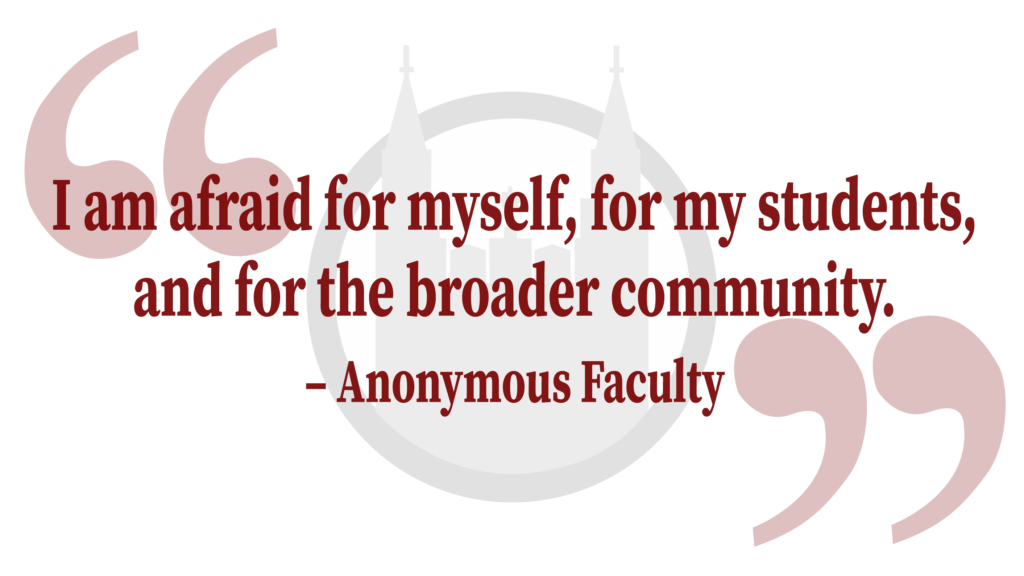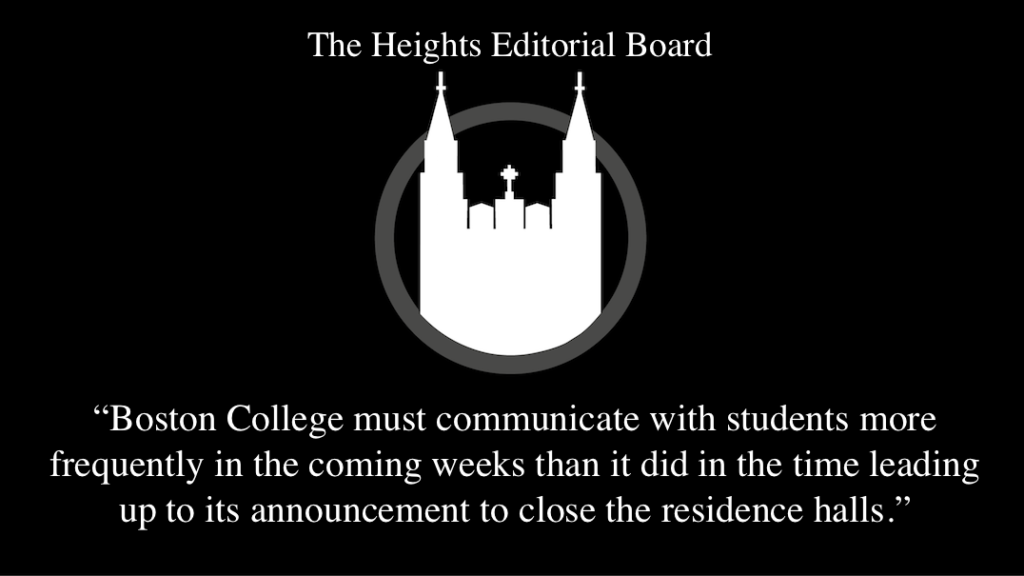Kristan Hawkins, an anti-abortion activist, will be speaking at Boston College on Tuesday. Her talk, titled “Lies Feminists Tell” and sponsored by the BC Pro-Life Club, drew controversy around campus and sparked an official student protest.
The event and the protest illustrate the importance of freedom of speech at BC. At a Jesuit, Catholic university, students who advocate for abortion rights may feel disconnected and frustrated from their college’s views, especially given BC’s repeated refusal to recognize the Students for Sexual Health organization on campus. Students whose views do align with the University’s on abortion may themselves feel isolated because of the perceived liberal political leanings of the majority of the campus. It is imperative that, as a liberal arts university, BC remains a place where discussion and debate can foster understanding and empathy, as well as both personal and academic growth.
In an interview with The Heights on Sunday, both the Pro-Life Club and the protest organizers said that their primary goal was to create dialogue. Protest organizers have been stressing that they are not advocating disruption of the talk itself.
The provocative name of the talk was also designed to attract interest. Though the “Lies Feminists Tell” talk name was originated by Hawkins, the Pro-Life Club could have changed or modified it. Given the small size of the Pro-Life Club, it is unlikely that a similar event with a less controversial name would have garnered even half of the attention that the current one has. Although greater campus dialogue has been initiated, the predictable outrage over the event has led to a suppression of expression both by students and Hawkins herself.
Hawkins sent out a fundraising email to supporters, claiming that she needed money to hire private security. In the email, Hawkins complained about the protestors, saying, “after the protests that were televised on the national news after Justice Brett Kavanaugh’s confirmation and the protests I’ve witnessed firsthand on my past campus speaking tours … my team is looking into hiring security guards.” She adds further, “Sadly, this is the reality we’re facing on college campuses today, even Christian ones.” Boston College Police Department Chief William Evans has stated that there are no security concerns about the event. BCPD will be present at the talk. The Pro-Life Club is not associated with the email.
Hawkins’ complaints about protesting and attempt to use debate as a fundraising maneuver are in bad taste, as is her insinuation that her talk should not be protested at a Jesuit institution. As a Jesuit University, BC identifies with core values such as compassion, service, and empathy fostered through continued conversation. It does not mean that BC is a homogenous Catholic student body with identical political viewpoints. Her denunciation of protestors practicing their freedom of speech at their University is inappropriate and unprofessional.
Separately, many posters advertising the event have been quickly torn down, presumably by students who support abortion-rights. The Pro-Life Club event had forseen students taking down the flyers, and on some flyers even overtly told students not to remove the posters, but rather to come to the talk and discuss their opposing viewpoints. Taking down flyers intrudes upon the Pro-Life Club’s right to host an event on campus and further hinders debate. Attempts to simply block the event do not encourage a free exchange of ideas on campus. It also goes against section four of the Code of Student Conduct.
A further roadblock to campus dialogue is the limited number of tickets available for the event. The event is free, but only 150 tickets were available, and those tickets were offered to the Pro-Life Club before they were available to the general student body. Though it was not purposefully done so in an attempt to limit attendance by those with opposing views, it still prevents some students with different opinions from attending the talk.
It is both possible and imperative for BC to remain a university where students learn from opposing viewpoints, and have eloquent debate rooted in respect and empathy. Further, students have rights to express their views on campus, in a form that can look like anything from protesting to hosting speakers. These rights must be respected both by fellow students and speakers who are invited to campus.


















